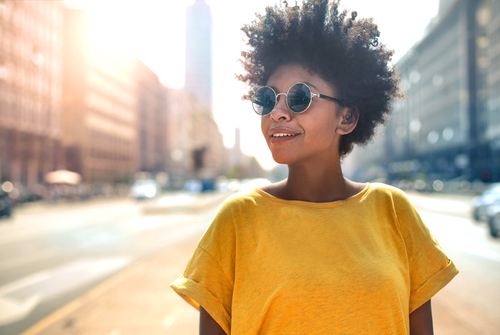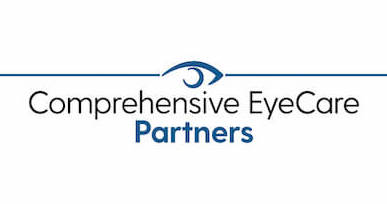
July is UV Safety Month! UV, or ultraviolet, is a type of electromagnetic radiation that’s emitted from sunlight.
It can also be emitted by artificial light, like the kind used in tanning beds. While getting some UV light is good for you and helps your body produce vitamin D, too much direct exposure to the skin can cause sunburn.
Too much exposure to the eyes can also cause long-term damage. It’s necessary to practice UV eye safety all year round, but it’s essential to protect your eyes from the sun during the warmer summer months. Keep reading to learn more about how to keep your eyes safe during UV Safety Month!
The Dangers of UV Light
While UV light stimulates vitamin D production, too much exposure to different wavelengths is harmful to skin cells and the cells in your eye. These wavelengths are called UVB and UVA.
UVB wavelengths harm the top layer of skin and cause sunburn and skin cancer. It can also cause burns on the surface of the eye. UVA wavelengths cause deeper and more long-term damage to the body.
UVA radiation is UV radiation that causes someone to develop more wrinkles as they get older. It’s also been linked to cataracts and age-related macular degeneration, both conditions which can severely impact your vision. The more exposure you have to UVA radiation throughout your life, the more likely it becomes that you will develop these conditions.
The Best Defense: Sunglasses
The best way to protect your eyes from UV light is with sunglasses. But be aware that not all sunglasses provide complete protection.
You want to use sunglasses that both have full coverage, meaning they cover your eyes and wrap around to cover the gap between your glasses and face.
You also want to ensure that any sunglasses you buy are marked with a sticker or are otherwise advertised as blocking out 99% or 100% of UVA and UVB rays.
If you wear contacts, they may have some degree of UV protection. However, since contact lenses don’t fully cover the surface of your eye, they cannot protect them fully. Even if you have contacts with UV protection, you should still wear sunglasses whenever you go outside.
Other Tips for UV Protection
In addition to sunglasses, you can also wear a wide-brimmed hat to keep the sun off your face. This is especially recommended for children whose skin and eyes are susceptible to sunlight.
Never look directly at the sun and make sure your children know not to, either. Also, know that you don’t just need to worry about UV rays when it’s sunny.
Even in cloudy weather, UV light can still get through. Be careful about UV light all year long, and wear your sunglasses whenever you’re outside for an extended period.
You should even wear them in the winter if you’re in a place that has snow. Sunlight is reflected off the surface of snow and can make the effects of UV light on your eyes even stronger.
Finally, be careful with artificial UV light. A UV lamp may be a good thing to have in the winter to help with your mood and vitamin D levels, but suntanning beds expose you to far too much UV radiation.
Even if you wear sunglasses in a tanning bed, repeated use can have lasting effects on your eyes and skin. Be safe and go without the artificial tan!
Want to keep your eyes safe this summer? Start by scheduling an appointment at Shepherd Eye Center in Henderson, NV!


